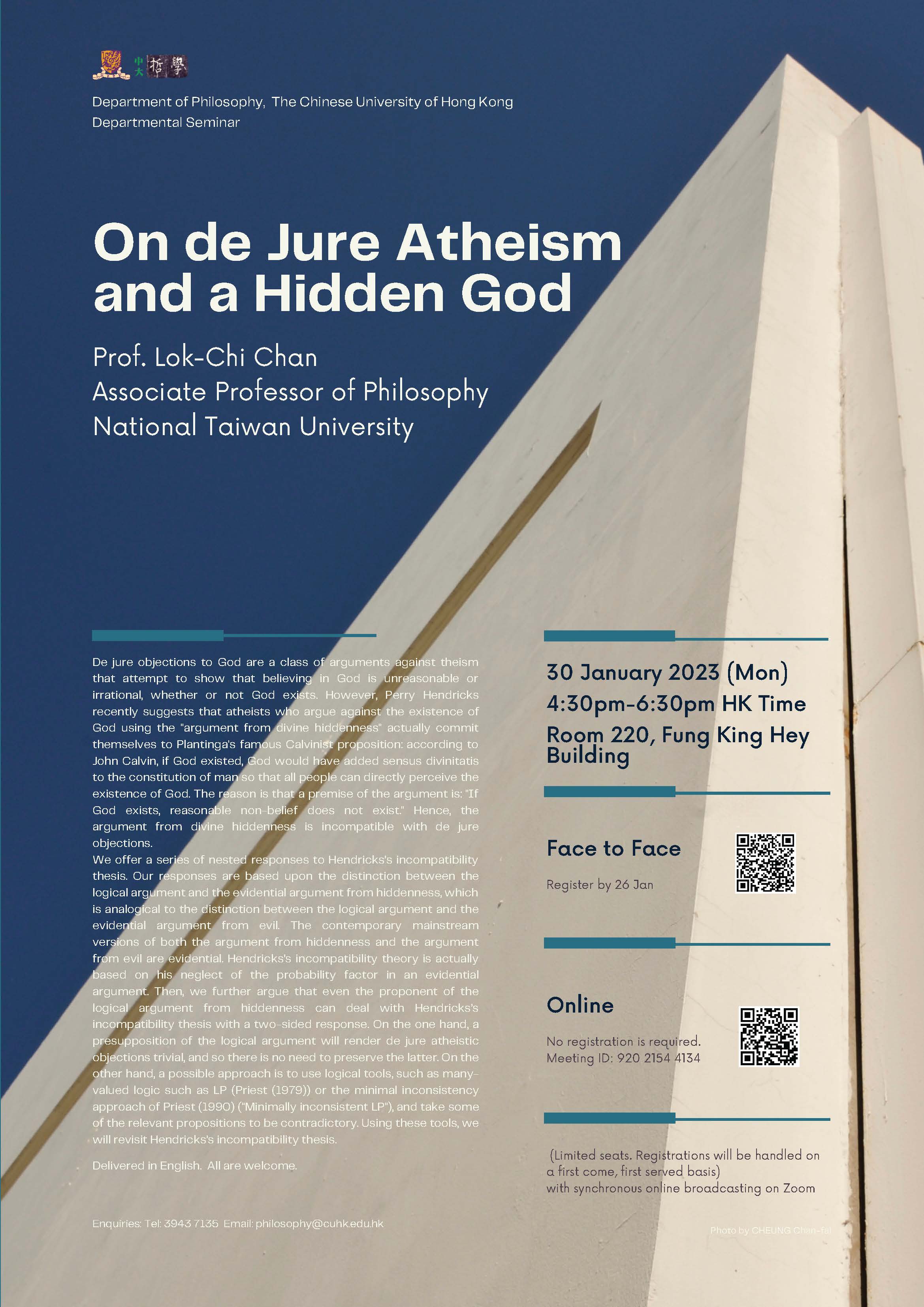On de Jure Atheism and a Hidden God (Departmental Seminar)

Prof. Lok-Chi Chan |
|
4:30pm-6:30pm HK Time |
|
Room 220, Fung King Hey Building with synchronous online broadcasting on Zoom |
Joining the Seminar face-to-face:
Limited seats for face-to-face seminar. Registrations will be handled on a first come, first served basis.
Register by 26 Jan: https://cloud.itsc.cuhk.edu.hk/webform/view.php?id=13660966
Joining the Seminar online:
No registration is required.
Link to Meeting: https://cuhk.zoom.us/j/92021544134
Abstract:
De jure objections to God are a class of arguments against theism that attempt to show that believing in God is unreasonable or irrational, whether or not God exists. However, Perry Hendricks recently suggests that atheists who argue against the existence of God using the “argument from divine hiddenness” actually commit themselves to Plantinga’s famous Calvinist proposition: according to John Calvin, if God existed, God would have added sensus divinitatis to the constitution of man so that all people can directly perceive the existence of God. The reason is that a premise of the argument is: “If God exists, reasonable non-belief does not exist.” Hence, the argument from divine hiddenness is incompatible with de jure objections.
We offer a series of nested responses to Hendricks’s incompatibility thesis. Our responses are based upon the distinction between the logical argument and the evidential argument from hiddenness, which is analogical to the distinction between the logical argument and the evidential argument from evil. The contemporary mainstream versions of both the argument from hiddenness and the argument from evil are evidential. Hendricks’s incompatibility theory is actually based on his neglect of the probability factor in an evidential argument. Then, we further argue that even the proponent of the logical argument from hiddenness can deal with Hendricks’s incompatibility thesis with a two-sided response. On the one hand, a presupposition of the logical argument will render de jure atheistic objections trivial, and so there is no need to preserve the latter. On the other hand, a possible approach is to use logical tools, such as many-valued logic such as LP (Priest (1979)) or the minimal inconsistency approach of Priest (1990) (“Minimally inconsistent LP”), and take some of the relevant propositions to be contradictory. Using these tools, we will revisit Hendricks’s incompatibility thesis.
Delivered in English.
All are welcome.




